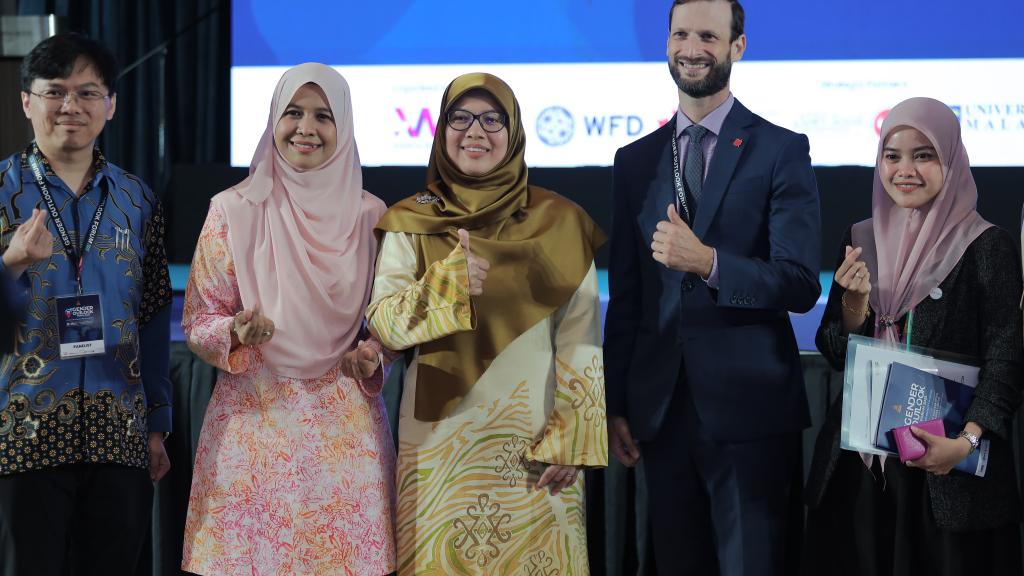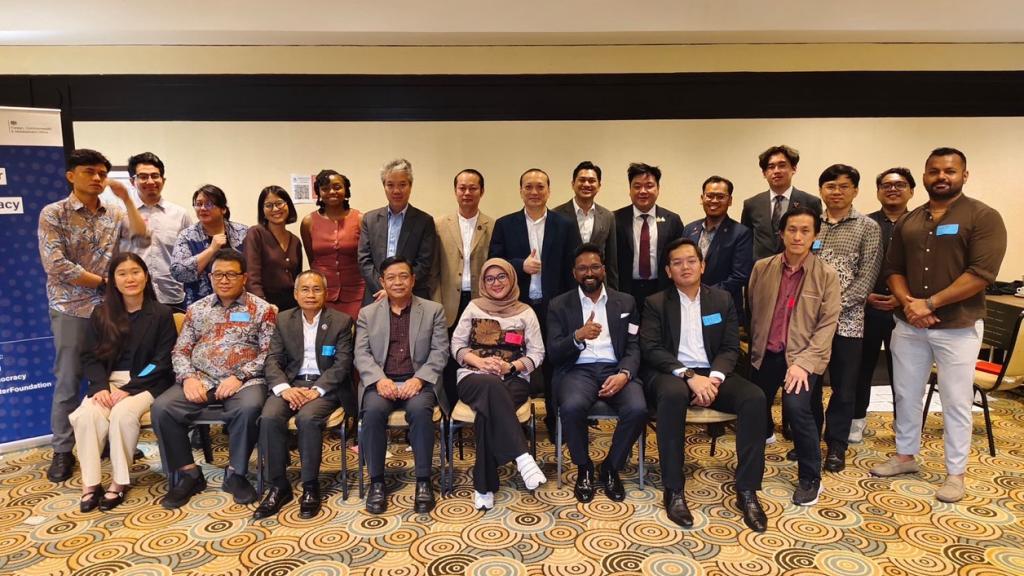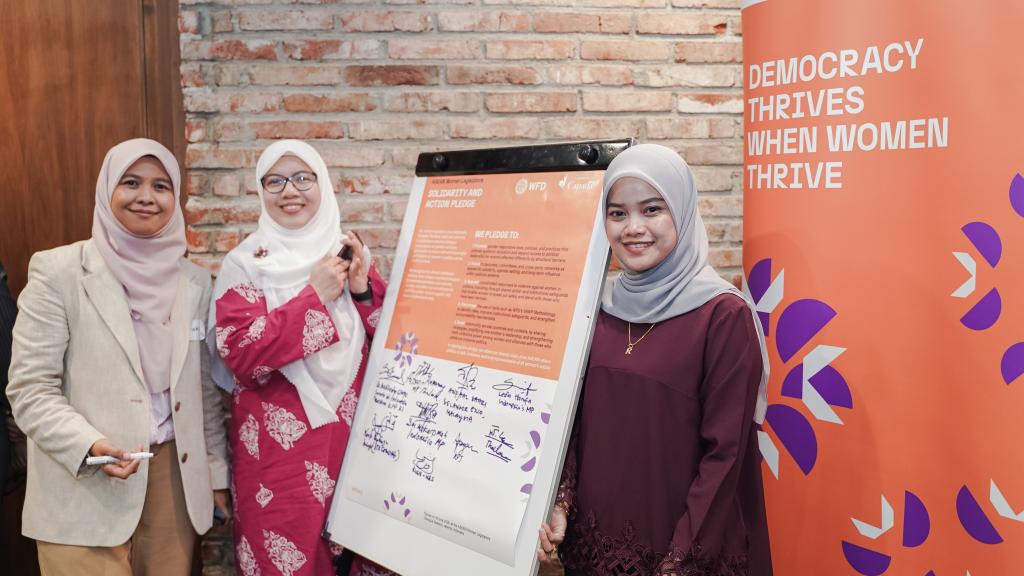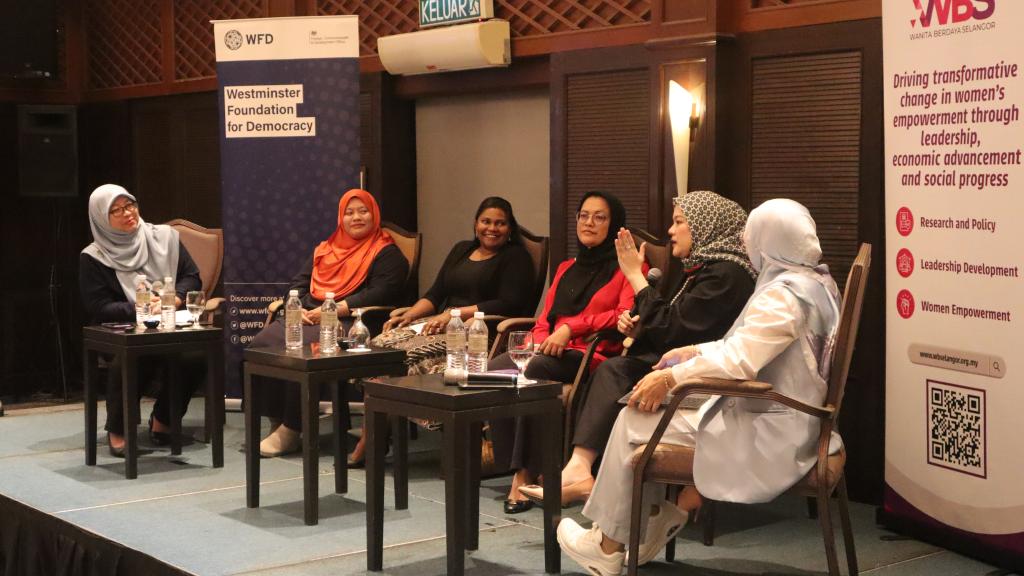WFD launches new methodology to tackle violence against women in politics in ASEAN region
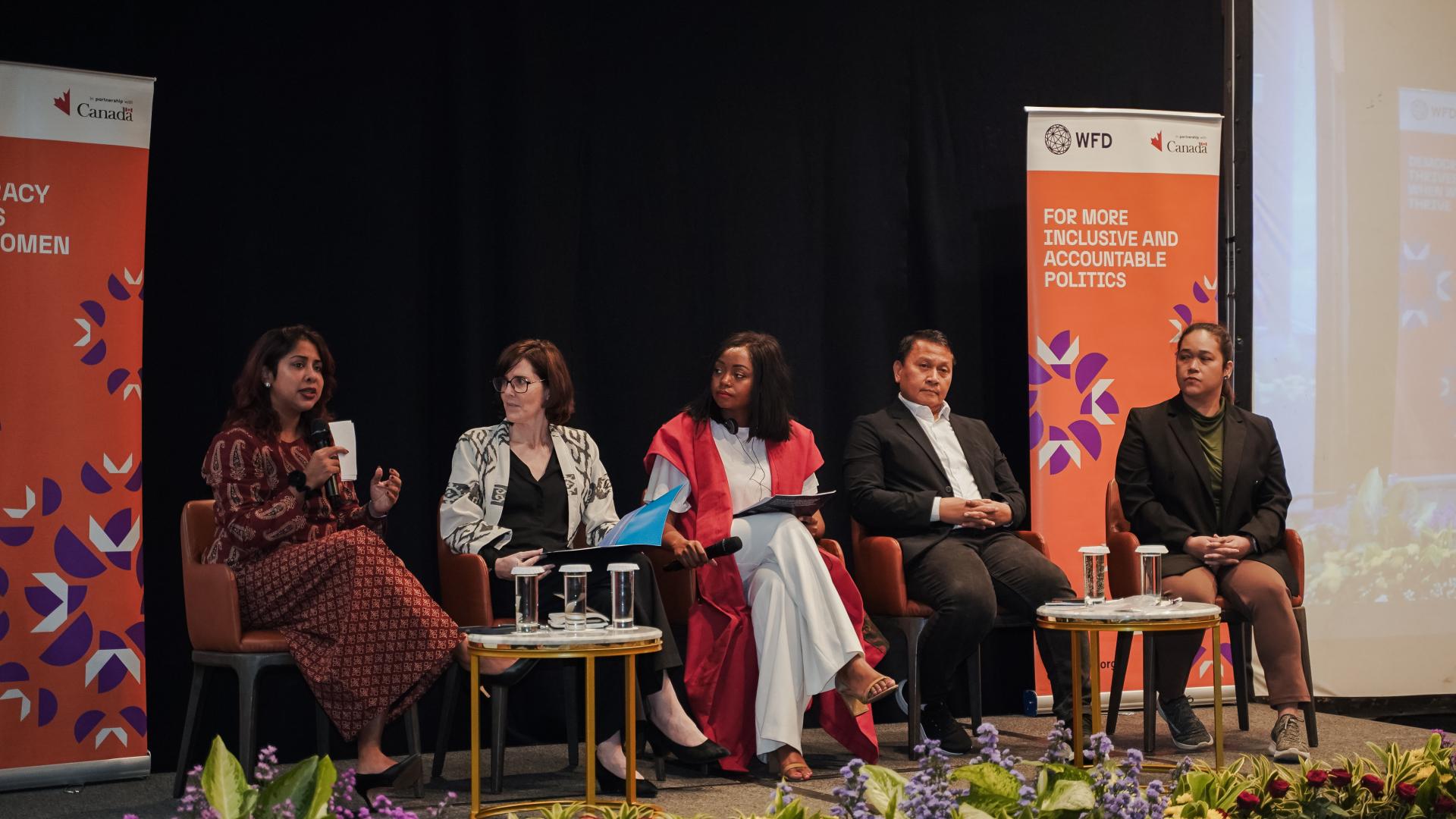
More than 85% of women parliamentarians worldwide face psychological violence, while in Indonesia 82% of female political candidates experienced heightened violence during the 2024 polls compared to previous elections, said a group of experts and politicians in Jakarta, Thursday (6/19).
Cecillia Makonyola, Head of Inclusive Politics Practice at WFD, added that incidents of violence against women in politics (VAWP) are often an early warning sign of democratic backsliding, so it is not just a women’s issue but one that speaks to the legitimacy and integrity of political institutions.
These remarks were made at a public seminar hosted by WFD and its regional partners to launch its VAWP Methodology, a new resource designed to address violence against women in politics and foster inclusive political environments across Southeast Asia.
Developed through mixed-method research, including a regional co-creation workshop in December 2024, the VAWP Methodology is grounded in women’s lived experiences and institutional accountability. It uses a trauma-informed approach to assess risks and institutional readiness to prevent and respond to VAWP. As a first step, the tool will be piloted in the region with stakeholders in Malaysia, Laos, Thailand, and Indonesia.
In his opening remarks, Matthew Hedges, Regional Director for Asia-Pacific and Americas at WFD, said the wider programme in the ASEAN region is not just about increasing the number of women representatives in politics, but transforming political systems, to become more inclusive, accessible, and safe. “Addressing violence against women is about institutional credibility. Responding to violence against women in politics is not an optional gesture; it is a necessary function of governments,” he added.
The seminar included remarks by H.E. Vicky Singmin, the Ambassador of Canada to ASEAN as well as an introduction to the VAWP Methodology by its co-authors Cecillia Makonyola and Constanza Robles-Fumarola and a panel discussion featuring voices from parliaments, electoral bodies, CSOs, academia, and women political leaders with direct experience of VAWP. Speakers reflected on how the tool can support institutional reforms and foster survivor-centred responses across the region.
Discussing the widespread prevalence of violence against women in politics, Cristina Fernandez Escorza, Programme Coordinator Specialist for Women, Peace, and Security, UNWomen, noted that 2025 research shows 76% of women parliamentarians in Southeast Asia reported psychological violence and 25% experienced sexual violence, while 60% faced online attacks. “We cannot tackle violence against women in politics by going to the individuals. It is an institutional issue. It is deeply embedded in norms and institutional inertia,” she added.
Highlighting the importance of the methodology, Sangetha Jayakumar, Secretary of the Women’s Wing, People's Justice Party (PKR), Malaysia said that the tool solution-oriented and aims to create safer spaces to bring more women into politics, especially encouraging young women to participate proactively in politics.
The event is part of the ASEAN Women’s Political Leadership (ASEAN WPL) Phase II programme – funded by Global Affairs Canada, an initiative committed to advancing women’s political leadership and tackling structural barriers, including political violence and discrimination. Over 100 participants from governments, electoral bodies, political parties, parliaments, civil society, and academia across Indonesia, Thailand, Malaysia, and Laos are expected to join in person at Hotel Aryaduta Menteng, Jakarta, with broader regional participation online.
